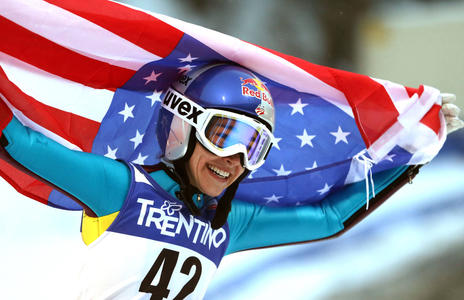PARK CITY — Sarah Hendrickson always thought she would be creating history on Dec. 29, 2013 — not viewing it from the stands. But a knee wound stolen the reigning world and nationwide women’s ski jump champion of competing in the first-ever Olympic tests for her sport. “Watching Olympic trials was heartbreaking,” the 19-year-old composed in an email to the Deseret News Friday afternoon. “Of course I have other ways to qualify, but I set that aim in my head this past jump, and I don’t like failing.” As gut-wrenching as it was to watch her partners contend without her for one of four locations on the group that will comprise the U.S. in the sport’s inaugural Olympic look in Sochi, Russia, she said it was furthermore inspiring.
“It furthermore gave me motivation through these next weeks so that I could get back on the high ground again,” she said. Hendrickson hurt her knee in a training misfortune in Germany on Aug. 21. A couple of days later she was back in reserve town undergoing surgery performed by Dr. Andrew Cooper to repair tears to her ACL and MCL. In an interview with ESPNW last week, Dr. Cooper said Hendrickson’s power and variety of motion are amazing. “I couldn’t find a reason not to let her do it,” he notified ESPN. As Hendrickson organises to check her body on snow in the approaching week, she discussed just how tough approaching back from the wound has been and what has kept her inspired as she tries to earn her location on the U.S. Olympic group that will be named on Jan. 22.

“The first two weeks were actually hard because of the pain,” Hendrickson said. “I could not walk, doze or drive, and that motored me crazy. The thought of Sochi was shoved out of my brain because I just wanted to be usual again.” In September, Hendrickson said that she skidded to a halt and knew right away she was injure. “I tried to refute that anything was wrong and just notified myself it was sore,” she said. “It was attractive devastating. I won’t sugarcoat it. I was on such a good path. I was leaping well, having some of the best jumps of my life when I dropped. That’s actually hard, but you know, you can only be miserable for so long. And then you have to pick yourself up and you work back and battle against the odds. If you want to make it to Sochi, that’s conspicuously what I’m going to have to do.”
It was Dr. Cooper who convinced her that her illusion was still inside reach. “Time was my biggest topic, and once my medical practitioner said it was possible (to retrieve in time for the 2014 Olympics), I put my head down and worked my butt off,” Hendrickson notified the Deseret report. “I had to accept as true in myself from day one off the functioning table — otherwise it wouldn’t work.” Hendrickson said there have decisively been tough days, but she’s had abounding of support and motivation as she’s worked hard to keep her Olympic illusion living. “I have had so many supporters through this whole process,” she said. “Of course my mom, and the endless nights of her getting up to get my meds and nourishment. In the gym, my health team has been outstanding and without their self-assurance and support, I would not be where I am today. As well as my sponsors — my large-scale worry was mislaying them and not only have they attached with me, but assisted me in every way likely to get back to jumping.” Hendrickson admits she dreams often of ski leaping. “Not all were good, but it is in my thoughts always,” she said.
It is her lifelong aim that kept her motivated when six hours in the gym endangered to wear her down. “I just desire to stroll into the unfastening observance and when I wanted to give up, I just pictured myself accomplishing that and push through.” In an interview in September, Hendrickson said the most difficult part of approaching back from an injury will be the mental facets of setting down. “The large-scale obstacle will be setting down — or the worry of landing,” she said. “Really, I think it’s just a mental game. I believe I’ll understand by then if I’m physically prepared. Mentally, I just have to tell myself I’m ready. If I get the OK from medical practitioners, it’s full throttle.” She said not jumping has been difficult — emotionally and bodily. “It’s really hard not to be jumping,” she said. “I love the games and just overlook the seem of flying and the force of competing. That is what I reside for. I have just endeavoured to distract myself and hold my eye on the aim with all the supporters around me.”
“Being in a games like women’s ski jumping, where you haven’t been encompassed for so long, I signify, no one of us gave up,” she said. “We’re here. We’re still battling. And hopefully we’ll get a possibility to achieve our dreams.” With the support she’s relished, she said staying affirmative has been much simpler. “We’re so closely knit,” she said of her partners. “It’s the battle we’ve gone through.” When Hendrickson has time to let her brain wander, she habitually moves to one location. “I daydream about being wholesome and strolling into opening observance and seeing my family in the crowd,” she said, “knowing that I have made them proud.”
Credit goes to : Amy Donaldson, Deseret News

